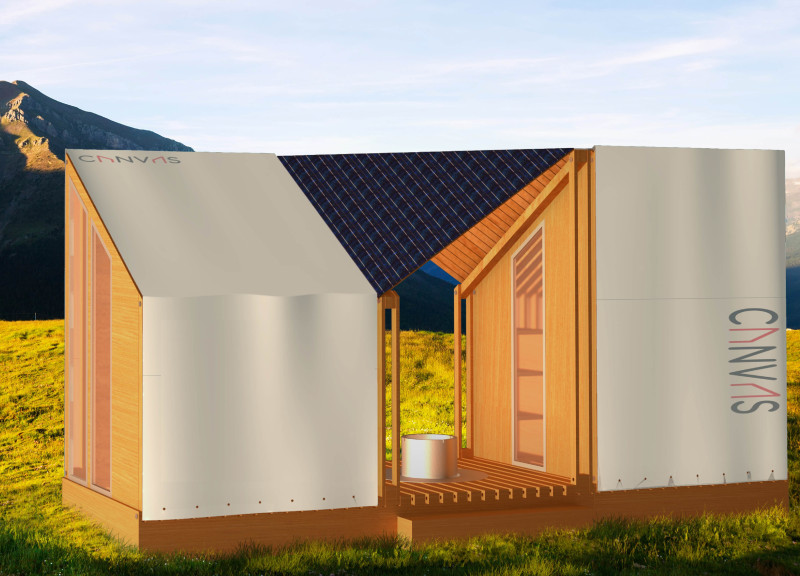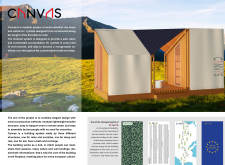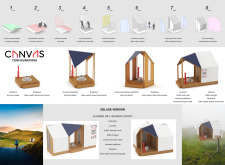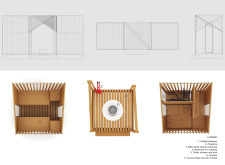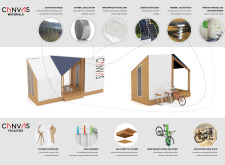5 key facts about this project
Canvas is a modular system designed specifically for cyclists, providing necessary rest stops and cabins along the EuroVelo 6 route. The focus of the design is on functionality, ensuring that accommodation is safe and comfortable for users. The overall concept aims to establish a clear aesthetic presence with a customizable textile cover. The project responds effectively to the varied needs of cyclists in different environments.
Modular Design and Construction
The framework of Canvas is based on modularity, allowing for efficient construction and adaptability. By using a lightweight wooden structure, the system can be easily transported to remote areas where conventional building methods may not be practical. Each cabin can be assembled by two people without needing heavy machinery or excavation work, making it accessible in varied terrains.
Defined Spaces for Cyclists
Canvas includes three distinct areas tailored to the needs of cyclists. There is a place for relaxation and socializing, a space for sleeping, and another area designed for eating, bathing, and recharging. This thoughtful arrangement fosters a sense of community among users. It ensures they have all necessary amenities for a comfortable stay while encouraging interaction with fellow cyclists.
Encouraging Community Interaction
A fireplace is a central feature of the cabin design, serving as a meeting point for users. This element promotes connections among cyclists from various backgrounds. The shared experience around the fire enhances the sense of community, making it not just a place to rest but also a social hub. This aspect highlights the project's role in facilitating cultural exchanges along the route.
Sustainable Material Choices
European wood is the primary material used in Canvas, chosen for its sustainability and local relevance. This selection helps connect the cabins with the surrounding environment. Using local materials also supports the regional economy and reduces environmental impact. The design incorporates flexible outer coverings, which can be adapted to blend in with local landscapes. Information walls may also be present to provide users with insights about the EuroVelo 6 route, enhancing their experience with valuable context.


